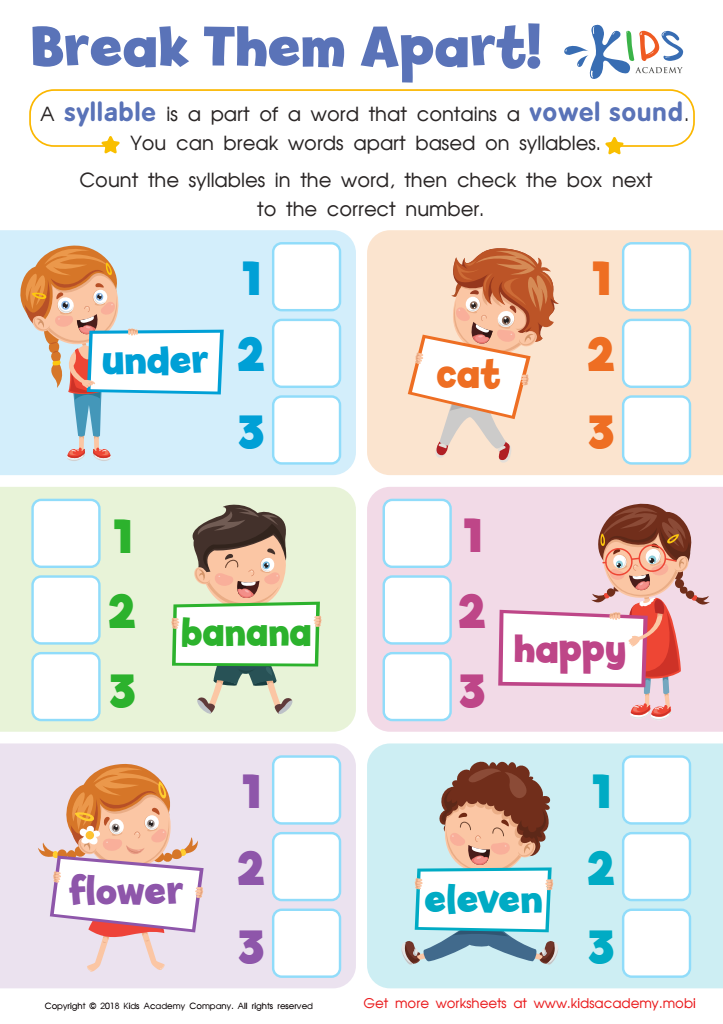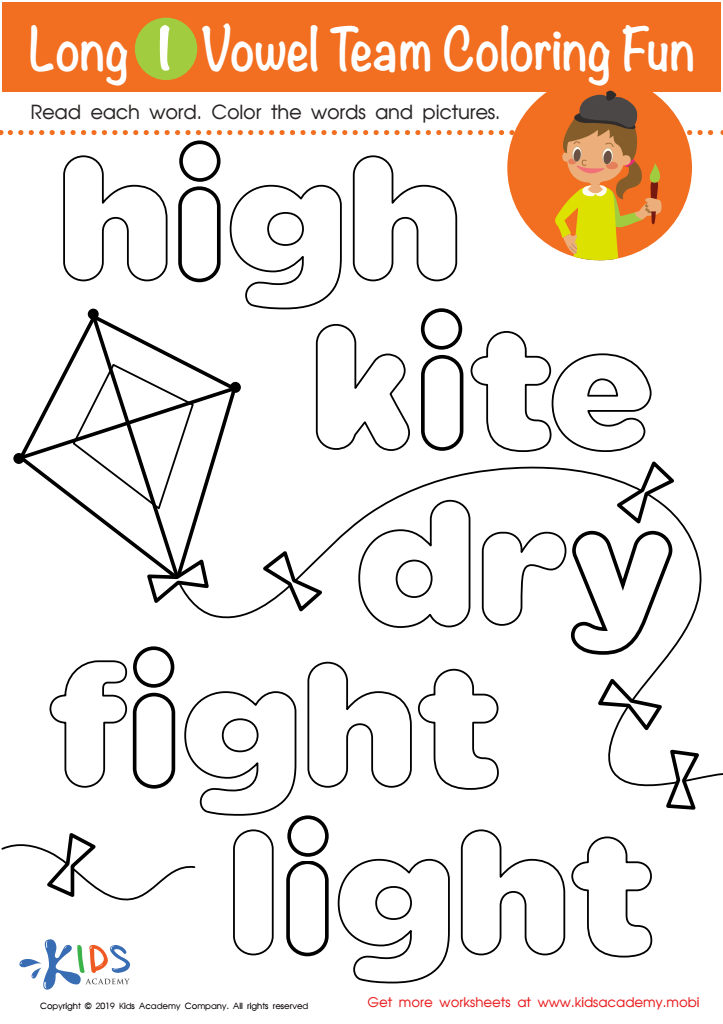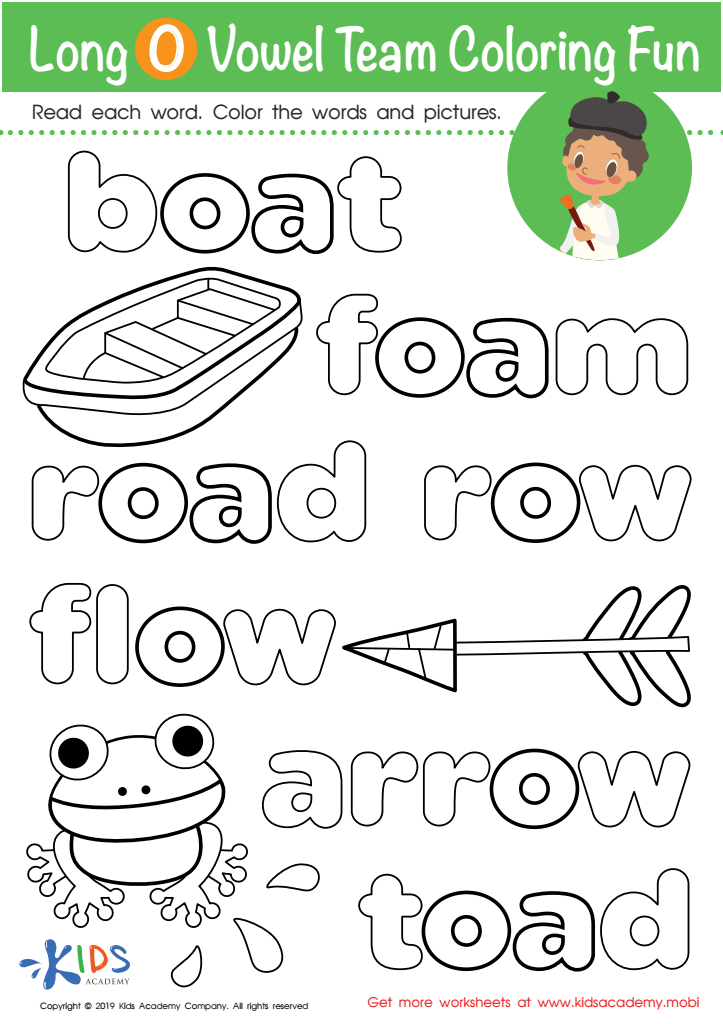Phonics Skills Elementary Phonics Worksheets for Ages 4-7
4 filtered results
-
From - To
Unlock the joy of reading with our Phonics Skills Elementary Phonics Worksheets, designed specifically for children aged 4-7. These engaging and educational printables focus on foundational phonics skills crucial for early literacy. Our interactive worksheets cover letter recognition, sound matching, and blending activities, all crafted to make learning to read fun and effective. Whether your child is just beginning to explore the alphabet or honing their phonetic skills, these worksheets provide structured practice tailored to young learners. Visit Kids Academy and discover how our phonics worksheets can support your child's reading journey and boost their confidence.


Reading: Break Them Apart Worksheet


Long I Vowel Team Coloring Worksheet


Long and Short E Worksheet


Long O Vowel Team Coloring Worksheet
Phonics skills form the foundation of reading and writing for young children, making them crucial for both parents and teachers to emphasize during the early stages of education. For ages 4-7, a time when children are most receptive to learning language basics, understanding phonics helps them decode and pronounce words correctly. This phonemic awareness fosters reading fluency and accuracy, enabling children to comprehend and enjoy what they read—key skills that underpin academic success across all subjects.
By integrating phonics into daily learning, children learn to recognize patterns in words and understand the relationship between letters and sounds. This knowledge boosts their confidence and enthusiasm for reading, setting a positive trajectory for lifelong learning. Moreover, strong phonics skills also enhance spelling and writing, as children become adept at breaking down words into phonetic components.
Parents and teachers who invest time and resources in phonics education are empowering children with essential literacy skills. Quality phonics instruction promotes cognitive development, critical thinking, and verbal communication abilities. Ultimately, a solid grasp of phonics gives children the tools to not only excel academically but also to navigate the world through effective reading and communication skills, making it a cornerstone of early childhood education.
 Assign to My Students
Assign to My Students














